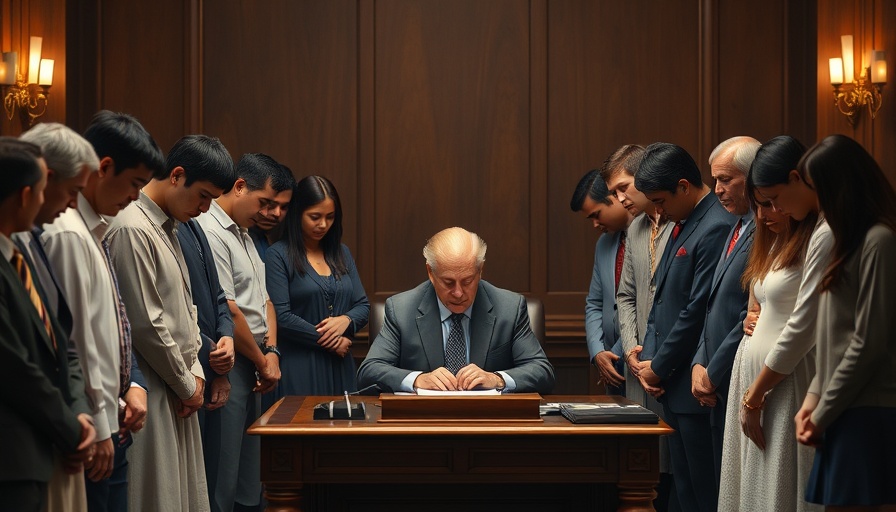
The Political Stakes of School Vouchers in Texas
The recent legislative move to advance a universal school voucher program in Texas has far-reaching implications, not only for education policy but also for the state's political landscape. Governor Greg Abbott, in alliance with former President Donald Trump, has championed this initiative, breaking through three decades of bipartisan resistance in the Texas House. This historic shift reflects a broader trend of partisanship where political leverage is increasingly used to push through contentious policies that may not reflect the will of the constituents.
A Call to Action from the Top
During a tense House meeting prior to the vote, Trump urged GOP members, emphasizing the importance of the decision at hand, stating it was one of the most critical votes they might face. His support could be pivotal, especially as he promised future endorsements for those who obliged. This aligns with a pattern of using national political figures to influence local decisions, raising questions about the extent of outsider influence over state affairs.
The Reaction from Texas Communities
Despite Abbott's proclamations of having a pro-voucher majority, the opposition from both constituents and a faction of Republican lawmakers indicates significant pushback against this initiative. Advocates against school vouchers argue that such a program undermines public education—a sentiment echoed by groups like Families Engaged and Pastors for Texas Children.
Historical Context of the Movement
School vouchers have historically been a contentious issue in Texas. Since the mid-1990s, attempts to introduce vouchers have consistently met resistance due to concerns about public education funding and quality. This attempt by Abbott, following a campaign heavily funded by privatization advocates, signals a renewed focus on educational choice, but critics contend that it prioritizes policy over people, especially with the decision to bypass a public vote on the matter.
Impacts on Business Leaders and Local Economies
The implications of this shift extend beyond education. For business owners and community leaders, the success of school voucher programs could reshape the workforce dynamics in Texas, potentially diverting funds from public schools to private institutions. It raises critical questions about the quality of education and subsequent effects on the local economy, as educational outcomes directly link to workforce readiness.
A Broader Dialogue on Education and Freedom
The phrase 'freedom in education' has become synonymous with the pro-voucher stance, often pitched as a means to empower families to choose their child’s educational path. However, this narrative has met resistance from educators and concerned citizens who maintain that every Texan deserves access to quality public education, which may be compromised by the voucher initiative. The essence of this debate reflects larger societal values about education and equity.
As this policy unfolds, it serves as a critical juncture for Texas, forcing both leaders and citizens to reconsider what educational advancement means for future generations and the role of community voices in shaping such pivotal decisions.
What’s Next for Texas?
The Texas Senate is expected to deliberate this controversial measure next. Given the political capital invested by Abbott and Trump, stakeholders in education—ranging from parents to educators—must remain vigilant and engaged. Now, as this issue moves forward, business owners, community leaders, and everyday Texans must advocate vigorously for the best interests of their public education system. The outcome of this vote may well set a precedent for educational policy across the nation.
 Add Row
Add Row  Add
Add 




Write A Comment